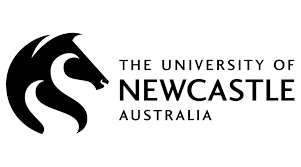University of Newcastle Professor Honoured As UNESCO Chair
The University of Newcastle’s Professor Penny Jane Burke has today been appointed a UNESCO Chair in Equity, Social Justice and Higher Education – a globally-prestigious role that will see her working to improve the lives of marginalised groups around the world, including victim-survivors of gender-based violence.
Prof. Penny Jane Burke has been appointed a UNESCO Chair
The United Nations Educational, Scientific and Cultural Organisation is a specialised agency of the United Nations, with Chairs appointed to create a network by partnering with institutions across the globe to address pressing challenges, reduce inequalities and improve equitable access to education.
Professor Burke, who has 25 years’ experience in the field of equity, social justice and higher education said she was thrilled to take on the role, which will extend the work of the University of Newcastle’s Centre of Excellence for Equity in Higher Education (CEEHE).
“The research we have been undertaking at CEEHE aims to mobilise higher education to address the challenging conditions that undermine progress toward reducing inequalities, gender equality and quality education for all,” said Professor Burke.
“As a UNESCO Chair, we will have the collaborative networks and resources to build on the work we have already done to make a real difference to communities facing social, cultural, political and environmental injustice.
“We will be able to challenge the concrete barriers and insidious inequalities that greatly undermine access to and participation in higher education and significantly improve the life chances of communities navigating social inequality, including victim-survivors of gender-based violence,” Professor Burke said.
Activity through the UNESCO Chair role will include co-creating, with community organisations and representatives, an Australia-Ghana Best Practice Hub to understand how gender-based violence (GBV) impacts access to higher education and to develop the necessary resources and mechanisms to alleviate the damaging effects of GBV. A peer mentoring program will be extended to generate collective work in improving gender equity across different contexts.
Dr Gifty Oforiwaa Gyamera, who has worked closely with Professor Burke and will be a key partner in the UNESCO Chair program extended her congratulations.
“I am so glad that we in Ghana will be able to benefit from the program. I want to congratulate Professor Burke and the CEEHE team and express our deepest appreciation for Penny for her initiative and how she has been able to assist in addressing gender inequities in Ghana.”
Three PhD fellowships will also be funded through the University of Newcastle, including an international student from Ghana to work with Professor Burke to build leadership and research capacity in the two nations.
Professor Alex Zelinsky AO explained the role will see Professor Burke and local and international partners working together to mobilise higher education as a vehicle for equity and social justice.
“The UN has described gender-based violence as a ‘shadow pandemic’ and we know this has devastating effects for victim-survivors. Professor’s Burke’s leadership and guidance will help our University to enable victim-survivors to flourish through accessible lifelong learning opportunities.”
“I am proud that we have Professor Burke, a world-leading researcher at our University who is uniquely bringing research and practice together for social justice. Professor Burke’s role as UNESCO Chair will see the University of Newcastle continue to be a leading university in equity by working with local and global partners to address critical issues for improving the lives of disadvantaged groups.”

